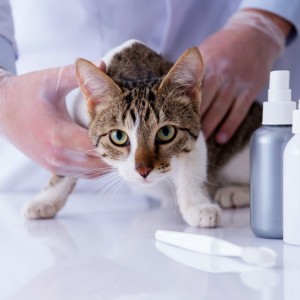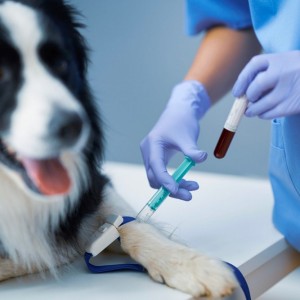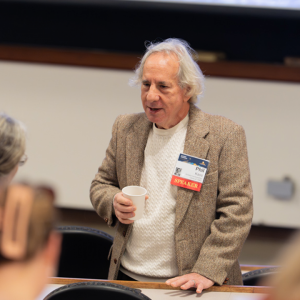Meet the Veterinary Professor Zooming Knowledge from Iowa to Ukraine’s Pig Farmers
With the grain markets in Ukraine unreliable and the supply chain for grain unstable, many Ukrainian farmers are turning to swine to make a living. But raising pigs can be complicated. So, they turned to a teacher from Iowa.
On a Wednesday morning in July, Justin Brown got up early in the morning—really early. It was 2 am, but he washed and dressed, and then hopped on his computer and fired up Zoom. For the next three hours, while most Iowans slept, he was teaching farmers in Ukraine how to raise pigs.
It’s not a career path that Brown saw for himself. But the assistant professor and veterinarian at Iowa State University will tell you that he’s been surprised by much of his career. Growing up in southeast Georgia, he wanted to become a mixed animal vet (the kind you take your dog or cat to see) and move back home to tend to the beloved pets in his small town. But in vet school at the University of Georgia, his mentor introduced him to a particular speciality.
“He said, ‘Have you ever thought about swine medicine?’ and I said ‘Well, I didn’t know that was a thing.’”
Brown was familiar with hogs. He grew up in an agricultural community, showed hogs in high school and was active in his local 4H chapter. So, he took his mentor’s advice and began looking into swine medicine. An internship sent him to Tennessee one summer, where he got his first taste of working in the field with hogs. He then headed to Iowa State University, known for its work in swine education and clinical medicine. As Iowa is the largest producer of pork in the country, home to nearly one third of all hogs in the US, it was the perfect place for Brown. So, when the Association of Ukrainian Pig Breeders (APB) reached out, Brown was ready.
There is an urgent need for swine education in Ukraine right now. Although sunflowers and grains are a major part of the agricultural landscape in Ukraine, the war has left the supply chain unreliable, leading to a surplus of grain in the country. At the beginning of the invasion, experts say about 15 percent of the swine supply in Ukraine was lost; now, farmers are using that excess grain to bring the hog numbers back up. Rather than let the grain spoil, farmers are feeding it to pigs as a high-protein food source, hoping to bolster the supply of hogs.
But with dozens of grain farmers turning to hog farming, they need help. That’s where Brown comes in. “There’s a decent amount of first-time hog farmers on those calls. There’s also some that are veterans that have been doing it for a while. And there’s veterinarians and non-veterinarians on the call. But the need arose from this new influx of producers, people jumping into swine production that didn’t have a ton of background. And so, they reached out to us, and I agreed to help them out.”
The APB had conducted a similar series of workshops with a previous Iowa State professor, and were looking to host one on swine health, disease and biosecurity. Brown quickly put together a series of 10 workshops, hosted online. “We cover a lot of different diseases that you would see at different life stages. We talked about lameness, reproductive cycles…gastrointestinal issues that might cause scours and what pathogens to look for there,” says Brown says. He also looks at PRRS, a common respiratory syndrome, as well as best practices for cleaning and disinfecting barns and hog houses.
The live workshops were held around lunchtime in Ukraine, or about 5 am for Brown in Iowa. (That first workshop was held in the morning in Ukraine leading to that 2 am wakeup call. After that, Brown asked to push the meetings back a bit.) Brown put together slides in advance and recorded a basic lecture on the information. He would send it to his contact in Ukraine, who would translate the slides and dub the lecture. Those lectures would play for the group, and then the real fun would begin: question period. With upwards of 70 people attending each lecture, plus time for translations back and forth, questions took a long time. Each meeting was two to three hours long, but Brown says everyone was incredibly engaged.
“A lot of times, they wanted to dive more in depth to something I said in the presentation. Sometimes, they wanted to know about specific treatments. We’ve talked about antimicrobial resistance, vaccination policies and protocols,” says Brown. “It’s way more than I expected when I jumped on the first one. They’re very interactive; they asked really good questions. And some of them even challenged me, and I’ve had to come back and look things up for the next webinar.”
For Brown, most of the questions were relatively straightforward, as pigs in Ukraine are mainly the same genus and species as pigs in the US, with a few differences in genetic lines. As they’ll get the same diseases and have the same clinical presentations, there was an instant connection between Brown and the Ukrainian farmers. It was surprisingly gratifying work for him. “When I initially started doing it, I approached it like I was just going to get to talk to another group of people about pigs and share some knowledge,” Brown recalls. “But once we got into the webinars and started getting that interaction, it’s been very rewarding…In the midst of everything they have going on over there, pig production should be lowest on the list. But they’re producing pigs and producing food for their people. And they want to do it the best way they can. So, there’s this thirst for knowledge.”
Brown finished up the last of the webinars at the end of September, but he’s open to another session. In fact, he’d be willing to go to Ukraine in person, when it’s safe to do so. He’s traveled for his work before, heading to Uganda while in medical school. “I took a ton of supplies over with me, met with [contacts at the Ministry of Agriculture] and traveled around Uganda for three weeks looking for pigs and testing them for African swine fever, to see where it was in the country, and then help them learn to restrain and bleed animals to collect those samples.” A few years later, he found himself in China looking at their swine.
So, could Brown become the traveling pig veterinarian? He’s not ruling it out. “I like to tell my students, ‘Don’t shut any doors.’ Always explore your options and see what’s out there.”
Author: Emily Baron Cadloff
Source: https://modernfarmer.com/













List
Add
Please enter a comment